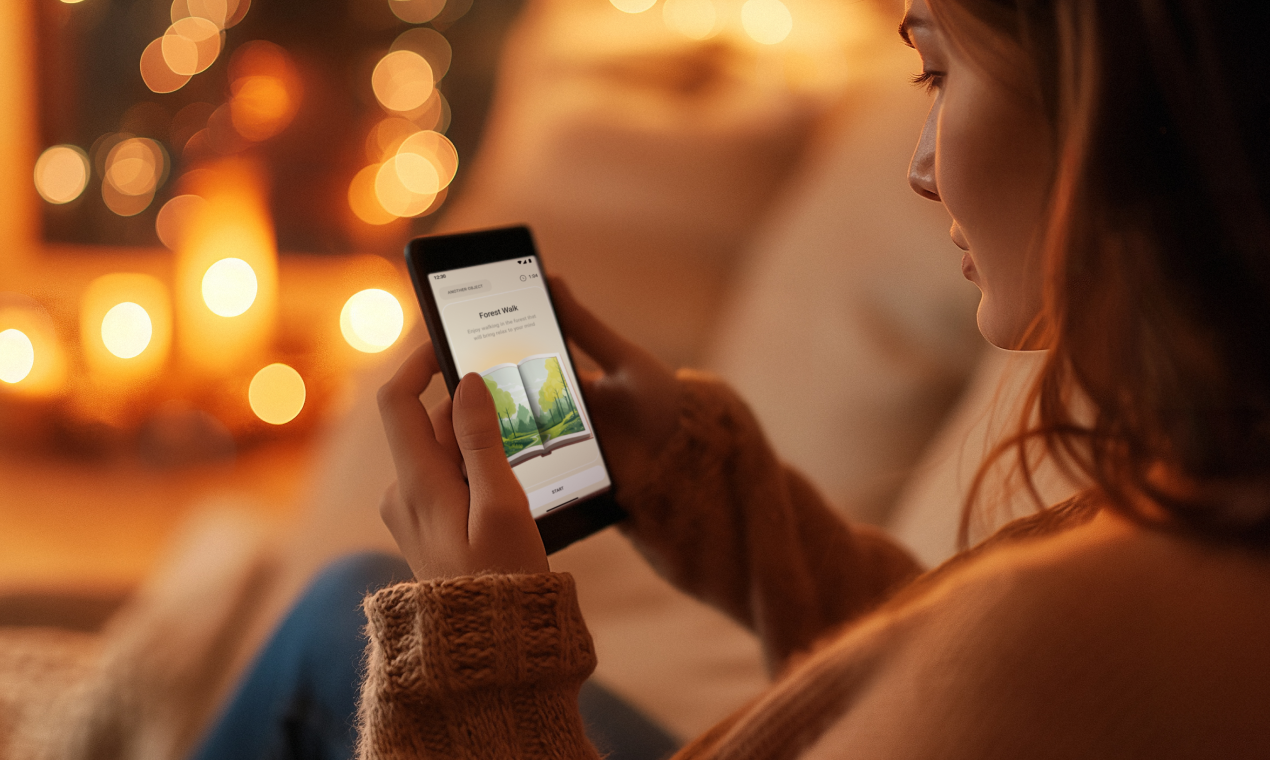Approximately 77% of U.S. adults and 63% of UK adults report facing stress on a regular basis, with major contributors including financial concerns, healthcare costs, personal debt in the U.S., and health conditions and housing worries in the UK (Stress.org) (FORTH). Together with that, the demand for mental health services continues to outpace existing resources (BMA) (US conference of Mayors), placing additional weight of being left alone on struggling people.
That’s where digital mental health solutions step in, and that’s why we developed Bear Room – to provide a safe place during the most unbearable times, offering the much-needed break for those seeking it.
Amid inflation, the cost of living crisis, and geopolitical tensions, the mental health of European workers is deteriorating. A recent survey reveals a significant decline in mental health across Germany, Italy, the Netherlands, and Spain, with 38% of workers at high risk of poor mental health. The study highlights that 35% of respondents feel more sensitive to stress post-pandemic, leading to increased anger, cynicism, and conflict. Notably, 17% of European workers are diagnosed with anxiety, and younger employees are twice as likely to report mental health issues. Financial insecurity further exacerbates the crisis, correlating with lower mental health scores. As stress levels rise, companies face reduced productivity and increased burnout, urging the need for effective workplace mental health support.
Minutes that make the difference
At Bear Room we focus on the instant aspect of stress relief, basing the idea on the positive distraction concept, where even a couple minutes away from stress delivers substantial benefits to both coping and further prevention. The app offers a variety of scientifically-backed exercises, including breathwork, EMDR, vocal practices, and tapping, lasting 3-5 minutes on average, allowing users to press pause during stressful moments. Even a short distraction is proven to effectively interrupt the body’s stress response (PubMed), and in Bear Room we increase the power of the distraction by filling the time with evidence-based techniques that help to further reduce stress.
Another element contributing to Bear Room’s ability to deliver instant relief is the absence of a learning curve. Instead of navigating through text-based cards, which can be confusing for newcomers to digital mental health tools, the app puts users in a room that serves as a safe space and offers comforting objects as visual metaphors, directly linking the exercise to the user’s experience. There’s a cup of tea for those needing a breather, a teddy bear for a hug, or a Newton’s cradle to help process a stressful moment. No background needed, no research – the user simply picks the object that looks like something they need right here, right now, and starts the relief process.
Here’s what science thinks about it, summed up by project’s advisor Dr. Christina Spragg, Clinical Psychologist and Global Workplace Mental Wellness Consultant:
“Redirecting our attention away from stressful thoughts and scenarios can have a profound impact on our brain’s sensory input and overall function. Positive distraction, a type of “adaptive disengagement coping strategy,” involves focusing on pleasant, non-threatening stimuli in the present moment to shift our brain’s activity from the default mode network (DMN)—associated with self-referential thinking and mind-wandering—to the sensory cortices.
By engaging in activities such as listening to music or appreciating nature, we activate the brain’s auditory and visual cortices. These sensory engagements help divert attention from pain or stress, providing immediate relief and activating the brain’s reward pathways, which release dopamine and promote a sense of satisfaction and well-being.
Previous research on the benefits of disengagement coping highlights its self-restorative aspects (Kleiber et al., 2002). This approach allows individuals to restore their resources, enabling them to better engage with stressors at a later time (Hamilton and Ingram, 2001; Skinner et al., 2003).”
Bear Room – safe place for unbearable times
Comfort objects that represent exercises are organized into a room – a safe space user can escape during the most unbearable times. Safe space, that’s always handy, only a tap away, available any time and any day. We encapsulated the concept of a fort, that could be different for everyone – some will think about their childhood rooms, some will remember the summer house or their own bedroom, that’s not as close physically, but always reachable through the Bear Room.
Bear Room currently focuses on coping, to help those with daily/chronic stress avoid further damage. “More than half of respondents of our surveys aren’t aware or use any self-help tools, — says Jane Makarevich, Product Owner and Co-Founder of Bear Room at DŌBRA. — And when people feel under pressure, stress piles up, leading to bigger crises and major life challenges. That’s why we decided to work with this topic of instant stress relief: to help people right here, right now”.
Bear Room is one of the concepts developed at Impact Venture Studio DŌBRA, based in Lithuania, as part of the ongoing digital mental wellbeing bunch. Studio works with finding solutions for global issues, and mental health is definitely the one that needs attention at the moment. As at June 2024, Studio has raised over €500,000 for concept development, with Bear Room being the frontrunner of the bunch.
During soft launch, over 10,000 people from all over the world got to experience Bear Room, and the overwhelming amount of positive feedback (100 + store reviews) provides an indisputable proof of product-market fit.
In the upcoming three months, our focus will be on enhancing the preventive aspects of the app. We aim to cultivate a positive habit of integrating exercises into users’ daily routines, fostering proactive stress management. Additionally, we are committed to implementing room customization features, empowering users to personalize their safe space to reflect their unique preferences and needs fully.

